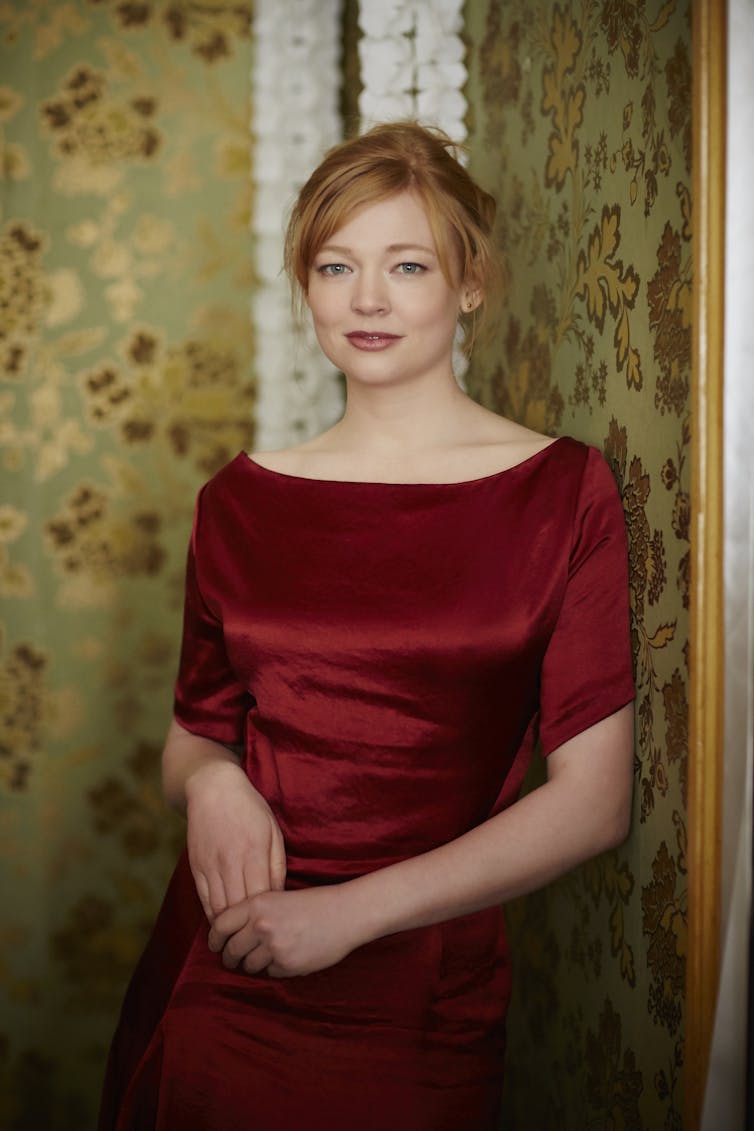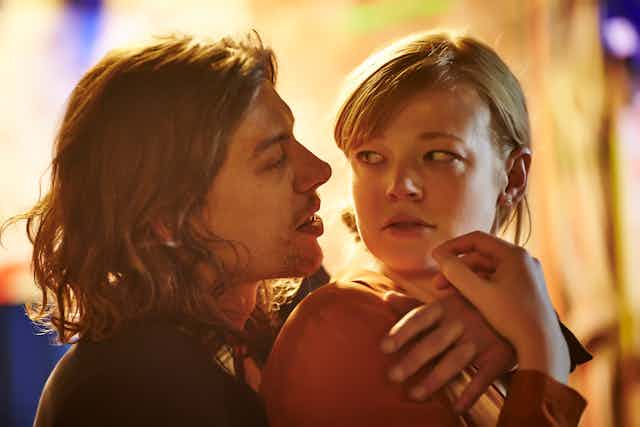Let’s deal with the timeworn adage that has haunted screen adaptation studies since the birth of the moving image. Can any screen version be as good as the book?
Is the new ABC miniseries The Beautiful Lie, the latest screen adaptation of Leo Tolstoy’s Anna Karenina (1877), as good as the book?
In short, the answer is yes. But the question, I would argue - and it’s one that film and TV critics in particular pose with tiresome regularity - is redundant. Why? Because, as with The Beautiful Lie, screen adaptations of the novel take us into very different creative territory.
Television adaptations of canonical texts invariably take the costume drama route, presenting us with safe, predictable genre fare that’s usually rolled out on Sunday evenings in serialized drip-feed.
From the BBC serializations in 1961 (starring a pre-Bond Sean Connery) and 1977, to the 1985 TV movie and the Masterpiece Theatre miniseries adaptation in 2000, Tolstoy’s tale of doomed obsessive love plays out in all of its predictable period glory, accompanied by the prerequisite dose of reverence for the canon.
But The Beautiful Lie is anything but predictable.
Given a contemporary makeover by writers Alice Bell and Jonathan Gavin, this Anna (played by Sarah Snook) and her husband, Alexander (Rodger Corser), are sporting “nobility”.

Their status as modern day tennis celebrities ensures their transition from Tolstoy’s 19th century Russia to 21st century Australia within a familiar context, while Vronsky’s military potency is translated to that of indie record producer, Skeet (Benedict Samuel), the sexy outsider whose star momentarily enters the gullible Kitty’s orbit. It is difficult to see how this seemingly radical recalibration of Tolstoy’s narrative can possibly work. And yet, it does.
The Bell/Gavin script has a particularly Australian flavor to it and earlier television dramas they’ve penned clearly influence their treatment of Tolstoy’s story. Rather than replicating 19th century Russia, Bell and Gavin create a contemporaneous Australian family drama of compelling energy for their 21st century audience.
The heady story of love and obsession is of relevance to all times but what’s achieved in this adaptation is a similarly telling critique of a society at a specific moment in time. Layers of family drama unfold, exposing the same levels of dysfunctionality, the same preoccupation with matters of infidelity.
Bell’s award winning work on two earlier TV drama adaptations Puberty Blues (2012), The Slap (2011) feeds into her depiction of sexual exploration and familial disputes. Gavin, a co-writer on Puberty Blues, is also an award-winning writer of relationship dramas including Offspring (2010).
All play out against a decidedly Australian cultural and geographical backdrop. But what’s handled with aplomb in this modern take on Anna Karenina is the humour that is so often left out of adaptations of Russian realist literature. The marital strife of Anna’s brother Kingsley and his wife Dolly is infused with gentle comedy, and Kitty’s adolescent angst strikes a familiar chord.
The success or failure of screen romance rests with the chemistry of its lovers: casting is as important to screen narratives as the prose on the page is to the writer.
In The Beautiful Lie, Sarah Snook and her Vronsky, Benedict Samuel, convince us of the inevitability of their union. But the series takes us one step closer to the heat of the affair in a most unusual reversal of narrative “voice”.

To adapt a first person narration from prose to screen is traditionally viewed as problematic: how does the visual storyteller translate first person narration through the apparatus of an all-seeing camera lens? Voiceover is employed sparingly on screen if at all in most instances, even when the text that’s being adapted is a canonical coming of age narrative like Jane Eyre or Great Expectations.
In this adaptation Anna’s dominant voiceover positions us with her from the outset, filtering our experience of the drama as it unfolds, and creating a pseudo confessional intimacy with the viewer. It speaks to the precursor text and yet it isn’t constrained by it: it takes the drama into different but universally similar emotional territory of relevance to a mainstream 21st century audience.
As with the majority of TV adaptations of canonical 19th century realist novels, film adaptations of Anna Karenina tend to follow the heritage cinema treatment: the camera lingers on period detail and is awash with wide angled panning shots of country mansions and rolling hills.
Screen legends Greta Garbo and Vivien Leigh have both starred as Anna (1935, 1948) in period renditions and there have been numerous adaptations (1927, 1997, 2012) since the first silent Anna Karenina in 1911. But like The Beautiful Lie, the latest film adaptation written by Tom Stoppard and directed by Joe Wright dares to do things differently.
Yes, it’s a costume drama, though a costume drama with a difference and one that tells the story in a manner that departs from Tolstoy’s realist mode of narration. Wright’s film frames the narrative as a piece of theatre; it takes us away from the heat that’s so central to the viewing experience of The Beautiful Lie and into Brechtian territory that places the audience outside the moment as onlooker rather than participant.
For some, this and the textual interventions of Bell and Gavin are a betrayal of the original text. For others, they are inventive ways to prolong the dialogue with a narrative that’s of universal, long-lasting potency.
Just as “every unhappy family is unhappy in its own way”, adaptations re-vision Anna Karenina in their own way but some, like The Beautiful Lie, thankfully take a more audacious approach than others.
The Beautiful Lie screens on Sunday nights at 8.30pm on ABC.

